Why hasn't China produced more NBA talent?
Alex Wong is an NBA freelance writer whose work has appeared in GQ, The New Yorker, Sports on Earth, and Complex, among other publications.
Before Game 1 of the 2017 NBA Finals between the Cleveland Cavaliers and Golden State Warriors, NBA commissioner Adam Silver held his annual Finals press conference.
“It frustrates me that there are no Chinese players in the NBA right now,” Silver said at Oracle Arena. “There’s probably more basketball being played in China than anywhere else in the world. And more NBA basketball is being watched in China than anywhere else in the world.”
Per information gathered by ESPN’s Tom Farrey earlier this year, more than 750 million television viewers watch the NBA in China annually; it's the country’s most-followed sports league on social media. And, more significantly, more than 300 million people in the country play basketball in some form, whether organized or pickup.
While other countries - including Spain, France, and Argentina - have continued to develop NBA-level talent over the past decade, there's been a gap in China.
Beijing-born Wang Zhizhi was the first Chinese-born player to appear in the NBA, suiting up for the Dallas Mavericks during the 2000-01 season. Wang was followed by 2002 No. 1 pick Yao Ming, who spent eight seasons with the Houston Rockets before announcing his retirement due to injury.
Since Wang and Yao paved the way, other Chinese-born players - Mengke Bateer, Yi Jianlian, and Sun Yue among them - have appeared in the NBA. But there's been no significant pipeline of NBA-level talent in the almost two decades since Wang and Yao made their debuts.
When the Rockets and Memphis Grizzlies selected Zhou Qi (43rd overall) and Wang Zhelin (57th) in the 2016 second round, respectively, it ended a decade-long drought of Chinese-born players in the draft.
To figure out why there's been a gap in Chinese talent in the NBA, we spoke to agents, scouts, general managers, and those who have covered basketball firsthand in China to identity the potential issues at hand - and whether brighter things are on the horizon for the future of basketball in China.
The money is good in China right now, and people are just staying home.
Before we consider the issues related to player development and coaching in China, there’s a broader question to ponder: Do Chinese players even consider making it to the NBA their ultimate goal anymore?
Increasingly, the Chinese Basketball Association (CBA) - which was founded in 1995 and currently comprises 20 teams - has become a landing spot for former NBA players, including Stephon Marbury, Tracy McGrady, Gilbert Arenas, Andray Blatche, and Michael Beasley. In recent years, the salaries for both import and domestic players have risen, giving Chinese-born players more of an incentive to stay home.
Ding Yanyuhang - a 24-year-old guard/forward who was named CBA’s Domestic MVP in 2017 - electrified the Thomas & Mack Center crowd with his play for the Mavericks in Las Vegas Summer League this year, even drawing MVP chants from the crowd. After leading the Mavs to an undefeated record at the Orlando Pro Summer League, Ding averaged 8.2 points on 40.6 percent shooting in five games in Vegas.
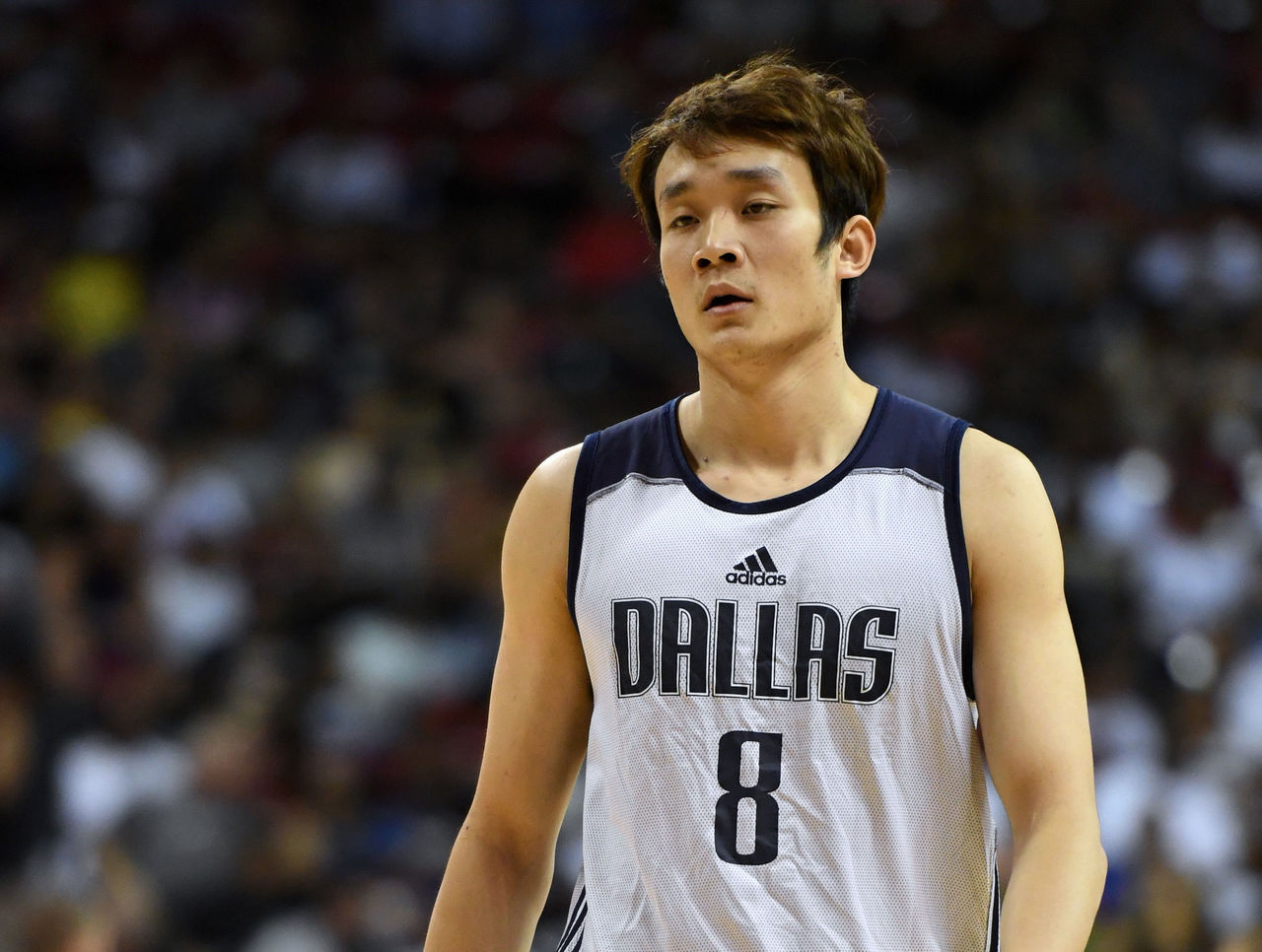
Ding emerged as a potential candidate to receive a two-way contract from the Mavs. Under a two-way contract, a player who spends the entire season in the G-League would earn $75,000 and up to $279,000 if he spends the maximum allowed time with the NBA team.
For Ding, who reportedly makes $500,000 per season playing for the CBA's Shandong Golden Stars, the financial motivation simply wasn't there to move to the United States for what could've ended up being an extended G-League stint. After summer league, Ding returned to China without a contract with the Mavs.
Mavericks' general manager and president of basketball operations Donnie Nelson agrees with the decision.
“The money is good in China right now and people are just staying home,” Nelson told theScore. “The was part of Ding’s decision. I think he was willing to forgo a lot of money for an opportunity to play in the NBA. But when you’re talking about millions of dollars, and you get a chance to stay home, it can be a real difference maker.”
The growing basketball market in China and the monetary benefits of being home has created a deterrent for players like Ding to take a financial hit to pursue their dreams of playing in the NBA. While domestic Chinese players with superstar potential will still be courted by NBA teams, there’s plenty of motivation for those who are a tier below in talent to stay home. In this way, it has created a gap for NBA role players coming out of China.
Andrew Crawford, a former CBA beat writer for the Shanghai Daily, points to Yi Jianlian as an example. Yi, one of China's most celebrated basketball players, was drafted sixth overall by Milwaukee in 2007 but never lived up to his NBA billing, finishing with an average of 7.9 points in 272 career NBA games.
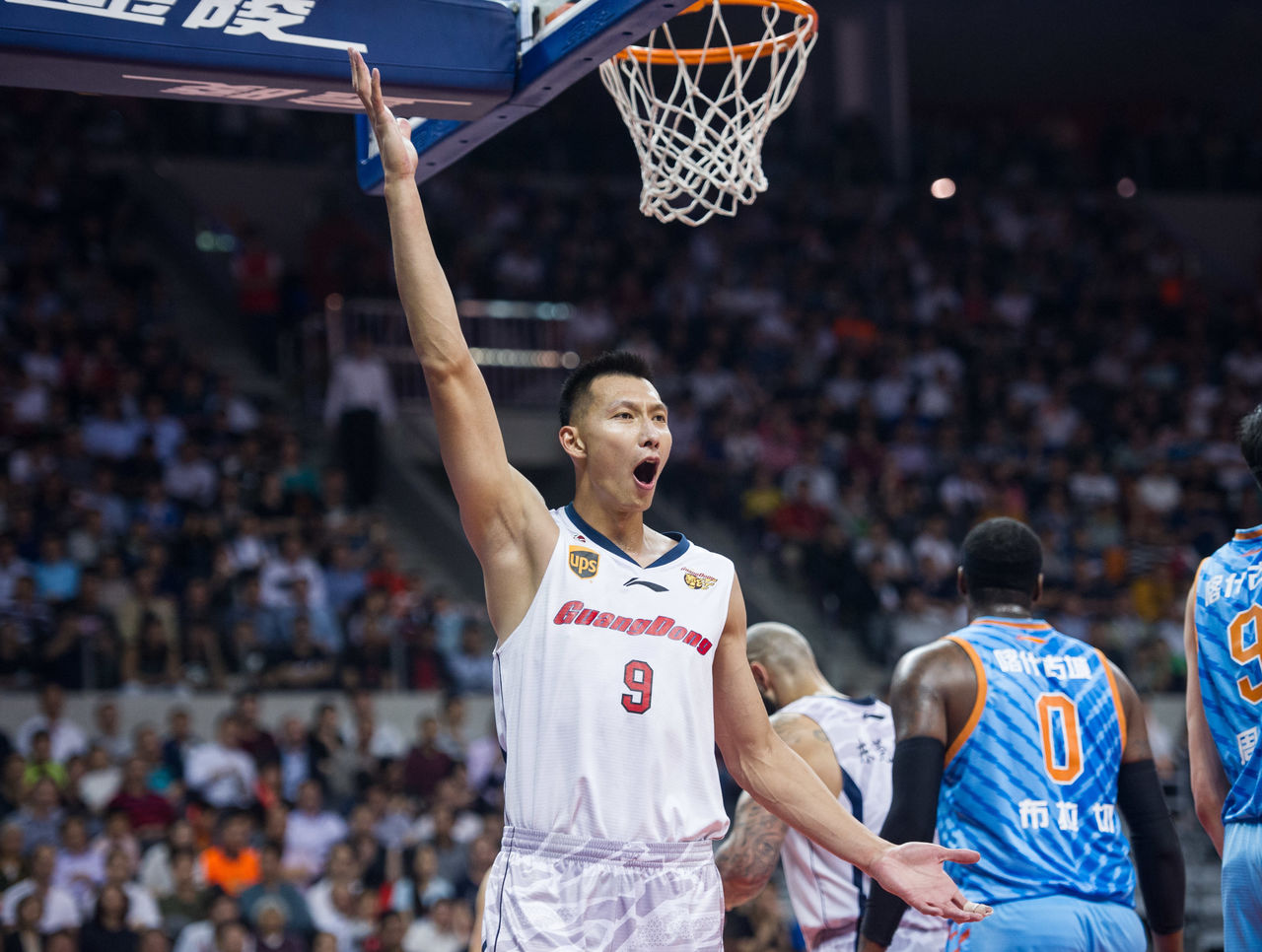
Last offseason, Yi signed a one-year, $8-million deal with the Los Angeles Lakers, seemingly paving the way for an NBA comeback after last playing for the Mavericks in 2012. But following a minimal preseason role, Yi requested his release and was waived before the start of the season.
“You have to be really brave to come out and have to deal with the intensity of the Chinese media if you’re a bench player, whereas you can be in China and be a big fish in a small pond,” Crawford told theScore. “Do you really want to take a hit to your prestige and your bank balance, and not be guaranteed the money and the status that you would get in the CBA?”
Matt Beyer, managing director at ALTIUS, and the first foreign sports agent in China, agreed.
“The salary for top domestic players (in China) are really high,” Beyer said. “It’s going to take a real special type of guy to say, ‘I’m going to take myself out of my comfort zone.’”
It is much harder to discern at a young age who among a multitude of average basketball-sized players will develop into a star.
China has never lacked the resources to find that "real special type of guy" of which Beyer speaks. By the time he was 12, Yao was attending a local sports academy in Shanghai, being groomed into a basketball superstar. At the age of 14, Wang was recruited by the People’s Liberation Army (PLA) and later joined the Bayi Rockets, a CBA team sponsored by the PLA.
Yao and Wang were both 7-footers, and height has always been a huge draw for coaches in China. But according to a scout currently working for an NBA team in China, the rigidness with which the country continues to identify its basketball talent at a young age is limiting their chances of finding that next "special" guy.
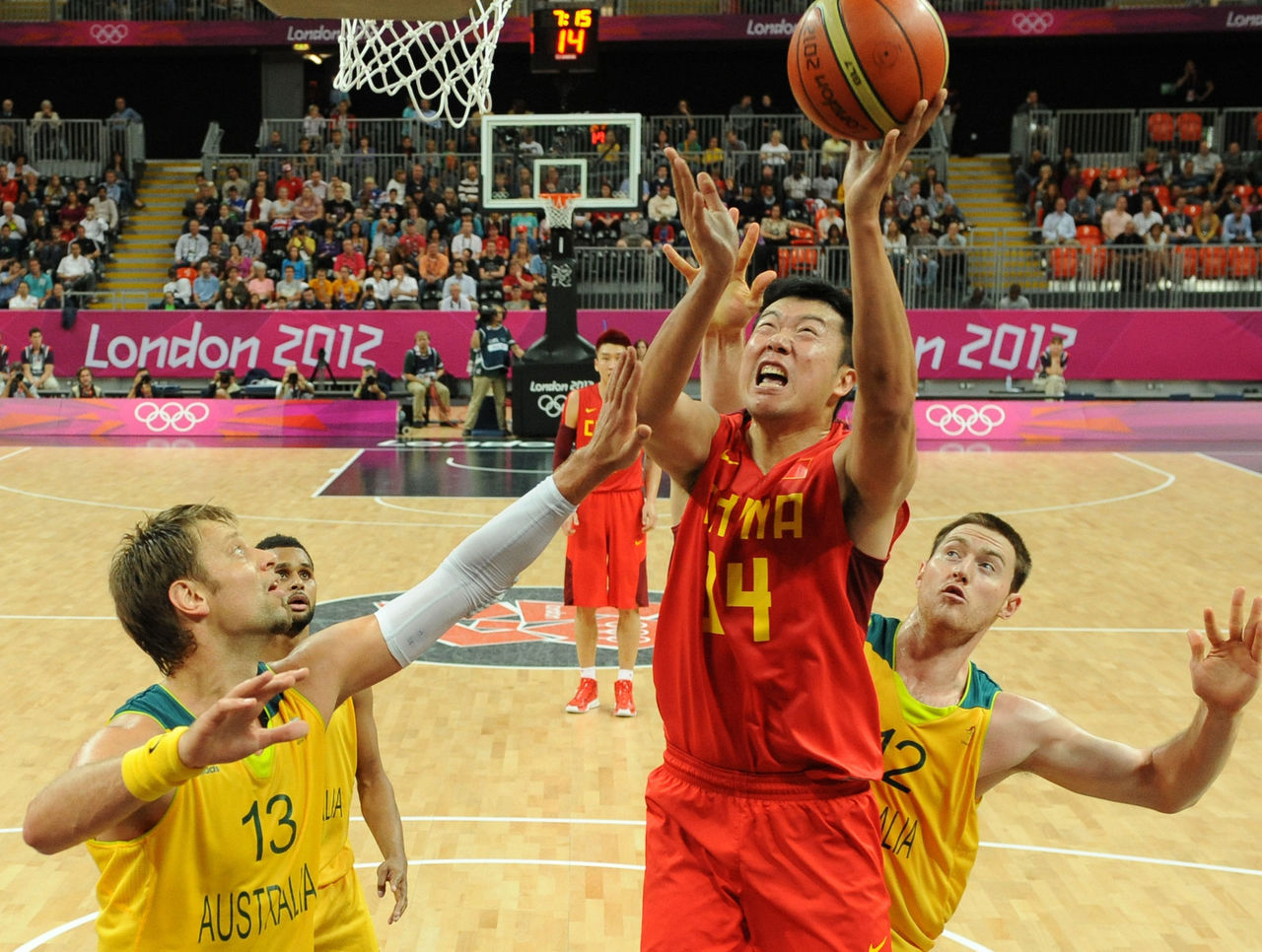
“Seven-footers are already rare and the players at the highest levels tend to be outliers,” the scout, who requested anonymity, told theScore. “When one comes along, he already possesses an attribute - height - that is in demand.”
According to the scout, big men are still being prioritized from a young age - which means the country with a population of 1.6 billion is relegating itself to a very small pool of basketball talent, leaving plenty of guards out of the equation.
“It is much harder to discern at a young age who among a multitude of average basketball-sized players will develop into a star,” the scout continued. “Developing guards and forwards requires not only good coaching, but a system of competition that allows players to constantly hone their skills by competing against the best. Without both, it is very hard to rise to the level required to play in the NBA.”
The system in China appears to be shrinking the talent pool at a very early age. Athletes with exceptional skills and ability are identified and selected young, while everyone else is pushed toward academic routes in pursuit of profitable careers outside of athletics.
Once the academic route is chosen, even if the size and skill required to be a professional athlete is developed later on, there isn’t a discernible path for those talents to be coached and trained into a player with NBA potential.
But things are starting to change in China.
In 2011, the NBA partnered with the CBA to launch a world-class basketball academy in China, with on-site dormitories and NBA-approved training classes. NBA China has also worked with the Chinese Ministry of Education in 500 schools across 10 provinces to provide training to physical education teachers to teach basketball.
Under the Junior NBA brand, the league is also working with youth basketball leagues in Beijing and Shanghai. Last year, the league announced the opening of NBA academies for under-16 and under-18 teams in Urumqi, Jinan, and Hangzhou.
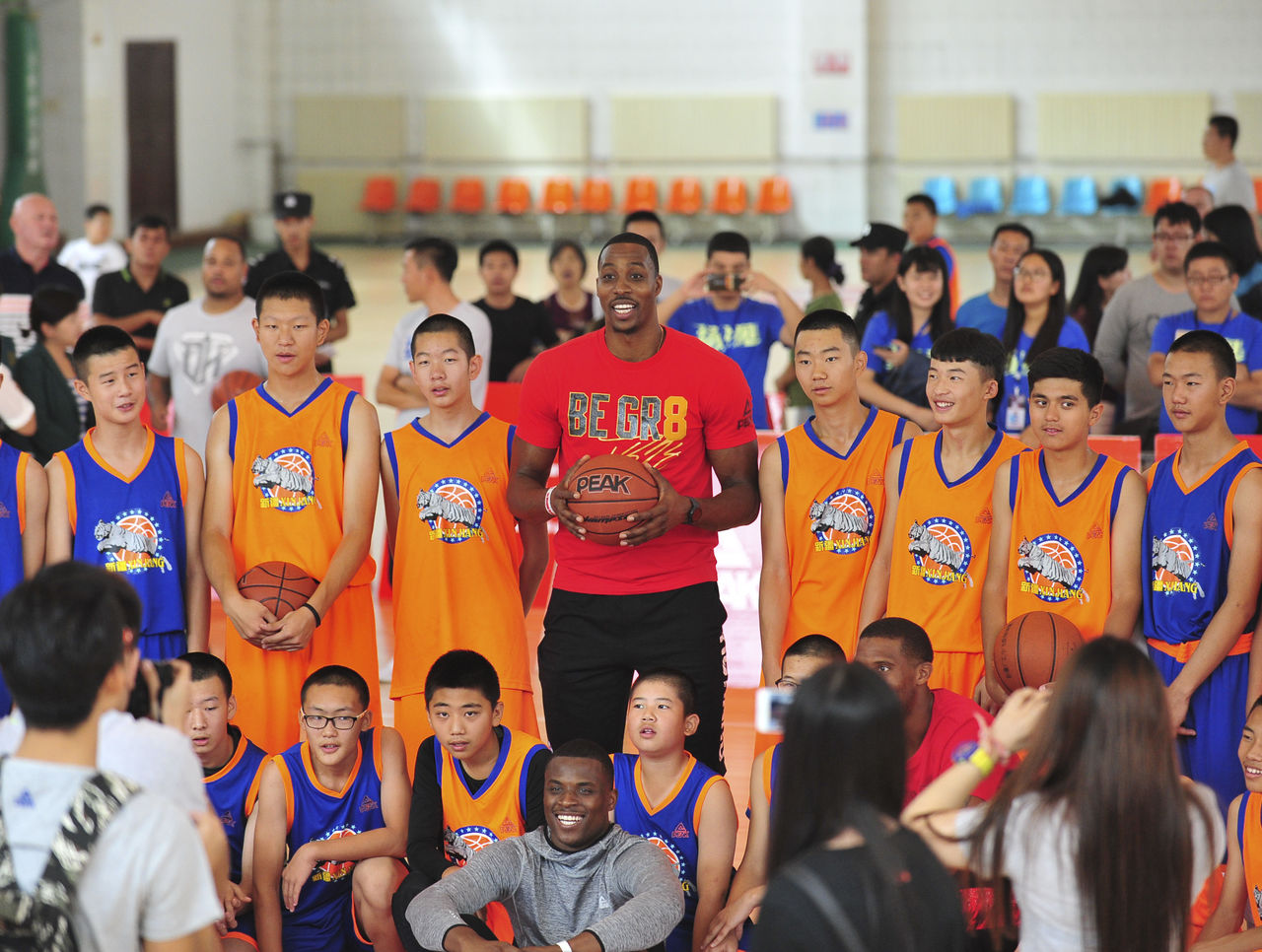
Beyer believes China is just in the beginning stages of setting up an infrastructure that will help develop NBA-caliber players on a regular basis.
“The private sector is emerging,” Beyer said. “From basketball camps, to youth teams, to recreational leagues. It’s a changing landscape. What’s happening in China is very positive. There’s a network of schools that are feeder schools for top talent, and you’re seeing them being developed at middle schools and high schools. A wider base of developing talent is always a good thing.”
The additional resources will help, but until the coaching is up to par, the talent gap between Chinese players and other nations will remain. According to the scout, training for athletes can often be repetitive, players are rarely taught fundamentals, and are often being pushed to the limit, creating a lack of trust and a diminishing desire for players to want to continue practicing.
China seems set on having its own superstars be preordained and manufactured out of a drills-based approach, which appears to be setting players up for failure.
Cyril White, Marbury's manager and the managing director of To God Be the Glory Sports China, agrees.
“They’re in these dorms all day,” White said. “They’re practicing basketball six days a week and traveling to play against other provincial teams. It just becomes such a drudge. It’s not like you get to hoop with your boys and strive for your dreams like in America. We would hoop for a few hours, go to the mall, go to the movies, go to a party, then get back at it again.”
While things appear to be changing, the scout cautioned that a lack of innovation in coaching can still be a deterrent to China producing more NBA-level talent.
“As much of the basketball world is modeling itself after the free-flowing Golden State Warriors, China still seems to be mired on the old Patrick Ewing New York Knicks style of low block post-ups,” the scout said. “That’s an oversimplification, but serves as an illustration of how China is a decade or two behind the times.”
You can pick up an NBA quality player and just plug him in and he’ll turn your mediocre franchise around in a couple of months.
Crawford, who covered the CBA in China for many years, has another theory as to why there’s been a Chinese gap in NBA talent in recent years: The proliferation of the import superstar in the CBA.
“You can pick up an NBA quality player and just plug him in and he’ll turn your mediocre franchise around in a couple of months,” Crawford said. “You just give him 35 shots a game and let him do what he wants. Chinese teams are not dedicated to giving young (domestic) players touches.”
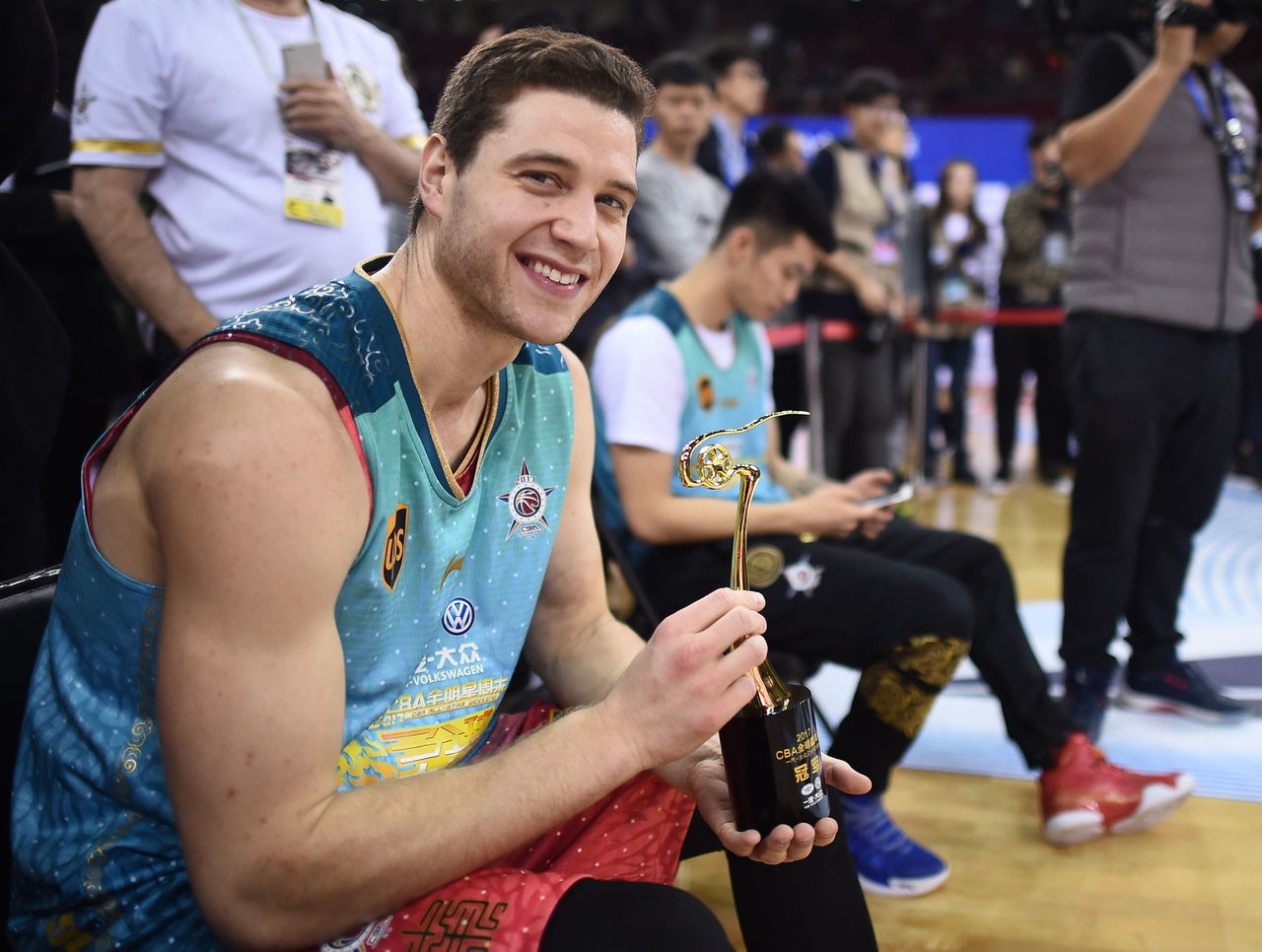
A scan of CBA league leaders in major statistical categories (points, rebounds, and assists per game) would lend credence to Crawford’s theory. The leaderboard is filled with foreign players. Jimmer Fredette of the Shanghai Sharks, selected 10th overall in the 2011 NBA Draft, led the CBA with 37.6 points per game and 27.7 shot attempts per game (11.5 threes).
For comparison, you’d have to scroll way down to find domestic MVP Ding, who finished 20th overall in shot attempts (17.8 shots per game).
Those numbers don’t tell the entire story, of course, but they do speak to a larger problem: The lack of motivation for the CBA to pursue anything besides the immediate success of its own enterprise.
“The incentive is to create CBA players who can compete in the CBA,” Crawford said. He brings up the example of a European soccer club, who develops a player through its system and sells him to another team for a massive profit. “That money can then be redistributed back to the team. In the CBA, I’m not sure there’s any financial benefit to CBA teams to nurturing these players with an eye to making them an NBA prospect.”
White was in China while Ding was making headlines with his summer league play and remembers the games being broadcast locally on CCTV, and subscribes to the same theory that the CBA is prioritizing themselves over anything else.
“All (Ding) was doing was adding value to the CBA,” White said. “With all that talent in China, they’re not just going to let that talent out like that.”
Nelson, who has worked with China’s national team, believes there's a benefit to having import players.
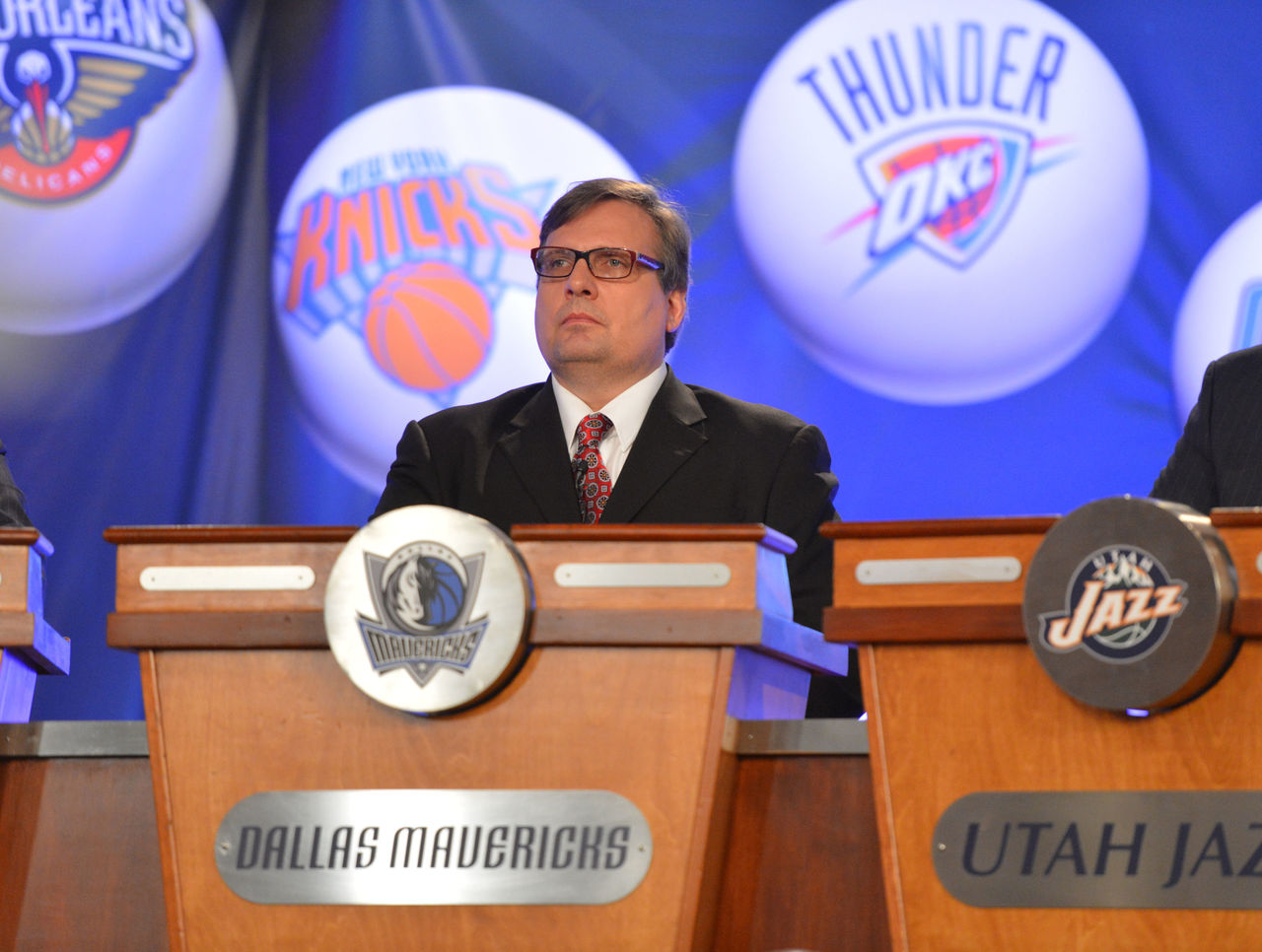
“Like anything, there’s a balance,” Nelson said. “I don’t think it’s in the best interest of anyone to have (a bunch of) American imports and all of a sudden the domestic players have no playing time. That’s not the right answer. At the same time, when you have NBA-quality players, it makes all the players around them better.”
Yet, Crawford thinks there’s still a long way to go before the CBA becomes a potential feeder system for the NBA: “I don’t think the coaching and player development for domestic players is as adventurous as it should be.”
The NBA is still the dream.
While the NBA scout emailed his responses to questions, he paused and wrote, “After a few pages I realized I had only scratched the surface. It might take a book to go into everything.”
The factors above only begin to explain some of the reasons why there’s been a lack of Chinese-born talent in the NBA.
Beyond the financial factors and the quality of coaching and player development, there’s also the burden of being the next Chinese-born superstar. It’s a responsibility that, as Beyer would say, will require a "special type of guy" to want to shoulder. The national team commitment required for the next Chinese-born superstar adds to the complicated balance of competing in the NBA and meeting requirements back home.
In 2002, Wang was dismissed from the national team after failing to report back to China for practice following the end of the Mavericks' 2001-02 season (Wang has since been reinstated to the national team). At the 2008 Summer Olympics in Beijing, Yao returned from a fractured foot earlier than expected to represent Team China (and last year, he expressed no regret for returning too soon).
Despite these mitigating factors, White - who continues to scout and work with players in China regularly - believes there’s still an incentive for Chinese-born players to leave their home country. “The NBA is still the dream,” White said. “But they understand it takes a lot for them to get there. It’s a lot more than just getting ready for the draft.”
It appears the future of basketball in China might once again depend on Yao, the most successful Chinese-born NBA player ever who was inducted into the Basketball Hall of Fame last year. Yao, co-owner of the Shanghai Sharks, was named the president of the CBA earlier this year.
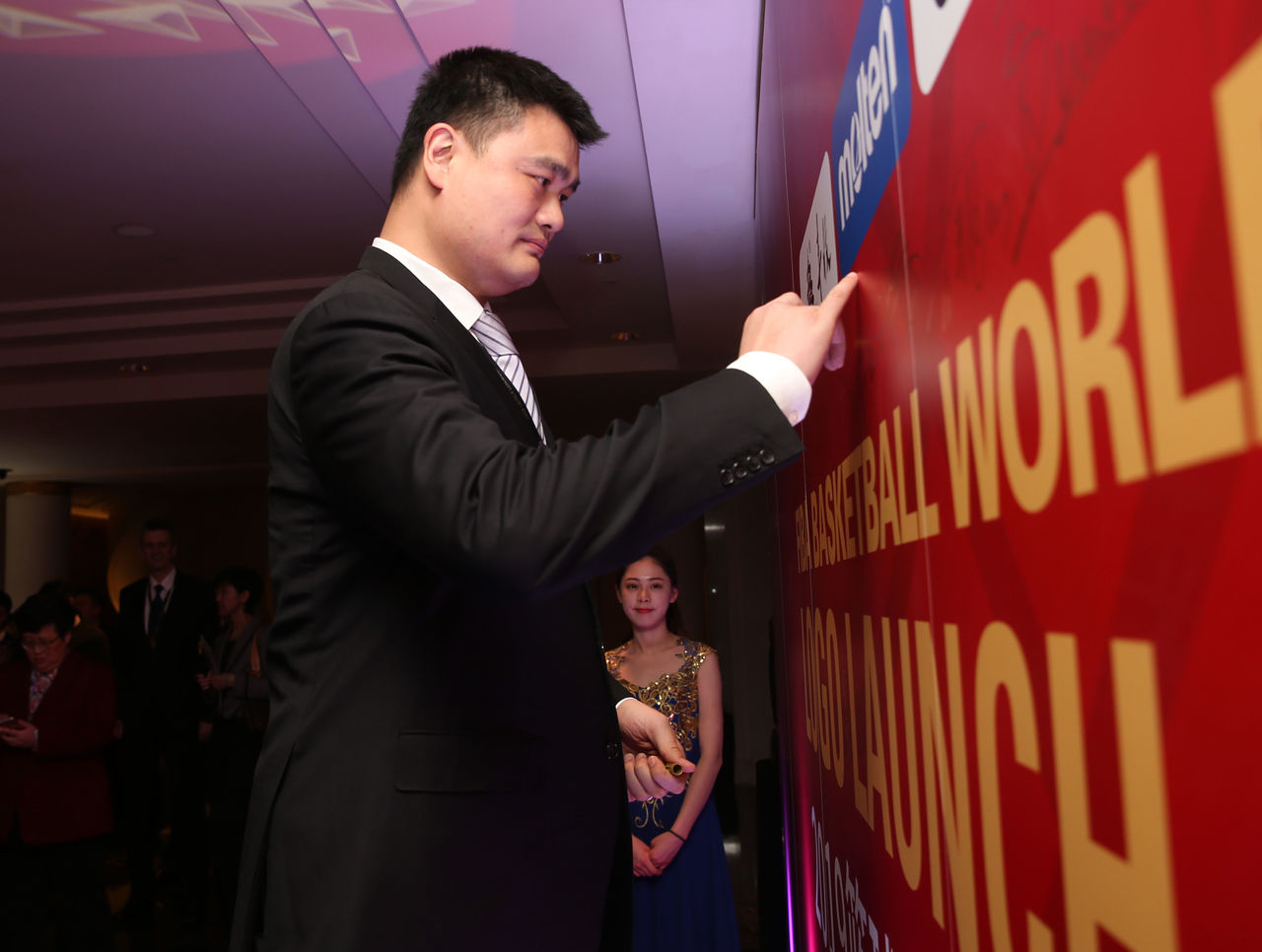
He's already started to propose league changes, including a reduction in playing time for foreign players, and to change participation with the national team to more of an invitation model. There's already been pushback on his proposals.
While it might take years before the infrastructural changes produce actual results, there are several Chinese-born players on the horizon that could fill the gap.
Earlier this summer, the Rockets signed Zhou Qi to a four-year deal. With his 7-foot-8 wingspan, Zhou could become a defensive presence and a rotation player for an NBA team with title aspirations. There’s also Liaoning Flying Leopards guard and national team player Guo Ailun, who became the first Chinese-born player to sign an endorsement deal with Jordan Brand in May.
Even with the lack of Chinese-born talent in the NBA, some remain optimistic. White believes, eventually, China will be able to fill NBA pre-draft camps with up to 10 players each year. Nelson also thinks it’s only a matter of time.
“It certainly is not because China lacks the emphasis or the infrastructure,” Nelson said. “With the CBA, the developmental academies, there’s been a lot of influence from the NBA, from Nike, to develop young players. If anything, it might just be a little dip and a lull. I think we’ll continue to see more players like Ding come over and impact the NBA in the future.”
(Photos courtesy: Getty Images)